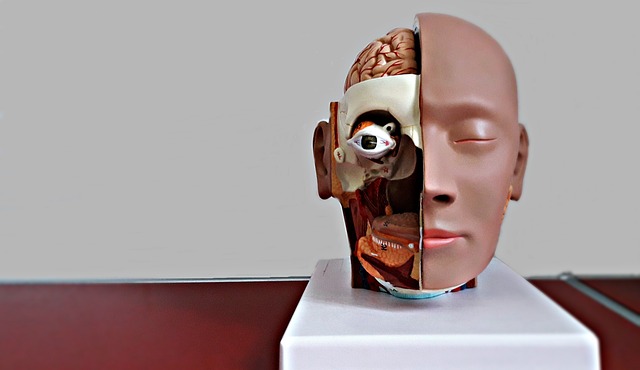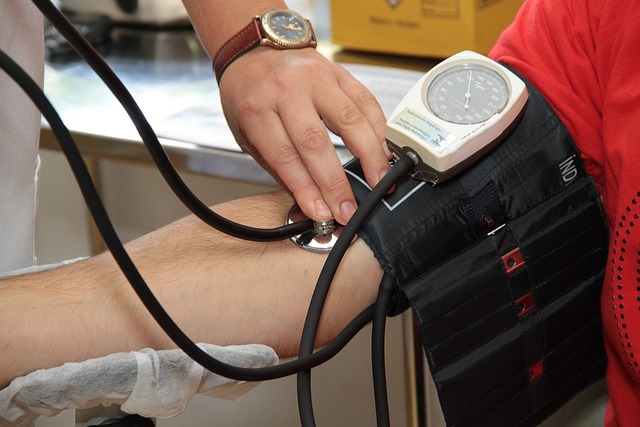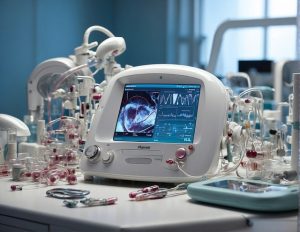Navigating Medical Report Translation Compliance in the UK: A Guide for Authorities
The UK's healthcare system, particularly the National Health Service (NHS), relies on Medical Record Translation UK services to overcome language barriers and ensure effective communication between multilingual patients and healthcare providers…….

The UK's healthcare system, particularly the National Health Service (NHS), relies on Medical Record Translation UK services to overcome language barriers and ensure effective communication between multilingual patients and healthcare providers. These translations must be precise to maintain accurate patient information sharing across departments and specialists, supporting informed decision-making and continuity of care. The sensitivity of medical data demands high-quality translations that are both medically accurate and sensitive to linguistic nuances, with professional translators specializing in medical language being essential for this task. Their work is about more than patient safety; it reflects the NHS's commitment to providing equitable care by maintaining integrity and confidentiality in handling diverse health information. Medical Record Translation UK services are indispensable, facilitating clear and accurate communication and ensuring compliance with industry standards like ISO 17100, as well as legal frameworks such as GDPR, NHS guidelines, the Human Rights Act 1998, MDR, and IVDR. These regulations ensure patient confidentiality, data integrity, and adherence to high standards expected by UK authorities. The sector's commitment to precision is demonstrated through extensive training for translators, utilization of native language translation, peer reviews, and the integration of secure technology for data handling, all contributing to the excellence in Medical Record Translation UK services.
In the UK’s diverse healthcare landscape, the imperative for precise medical report translations cannot be overstated. This article delves into the critical role of professional translation services, shedding light on the necessity for accuracy within this sensitive domain. We explore the regulatory framework governing Medical Record Translation UK operations and emphasize best practices ensuring quality and confidentiality. By examining these facets, we underscore the pivotal function of translators in upholding healthcare compliance and facilitating clear communication across linguistic boundaries.
- Understanding the Necessity of Accurate Medical Report Translations in the UK Context
- The Role of Professional Translators in Bridging Language Barriers for Healthcare Compliance
- Navigating the Regulatory Framework for Medical Record Translation in the UK
- Ensuring Quality and Confidentiality: Best Practices in Medical Report Translation Services in the UK
Understanding the Necessity of Accurate Medical Report Translations in the UK Context

In the UK’s multicultural landscape, the need for accurate medical report translation is paramount, especially within National Health Service (NHS) settings where patient care transcends linguistic barriers. Medical Record Translation UK services are indispensable tools that facilitate effective communication between healthcare providers and patients who speak different languages. The precision of these translations ensures that patient information is accurately conveyed across various departments and specialists, enabling informed decision-making and continuity of care. Given the sensitive nature of medical data, any miscommunication can have serious implications for a patient’s health and treatment outcomes. Therefore, medical report translation in the UK must adhere to high standards of accuracy, employing professional translators with expertise in both medical terminology and linguistic nuances specific to the source and target languages. This commitment to quality translation is not only a matter of patient safety but also aligns with the NHS’s principles of providing equitable care to all individuals, regardless of their language background. The role of Medical Record Translation UK services extends beyond mere linguistic conversion; it encompasses the vital task of preserving the integrity and confidentiality of sensitive health information across diverse populations within the UK.
The Role of Professional Translators in Bridging Language Barriers for Healthcare Compliance

In the UK’s multicultural society, professional translators play a pivotal role in ensuring that healthcare compliance is not hindered by language barriers. The translation of medical records is a sensitive task that requires not only linguistic proficiency but also an understanding of medical terminology and concepts. Medical Record Translation UK services are indispensable for patients whose primary language is not English, facilitating clear communication between healthcare providers and patients. These translators ensure that patient information is accurately conveyed across different languages, which is crucial for the provision of appropriate treatment and for maintaining the confidentiality and integrity of personal health data. The precision of medical report translations by professionals adhering to industry-specific standards, such as the ISO 17100, guarantees that healthcare authorities receive accurate and reliable information, thereby upholding compliance with UK regulations. This meticulous process is instrumental in safeguarding patient safety and promoting equitable healthcare outcomes for all individuals within the UK’s diverse population.
The UK’s commitment to providing high-quality healthcare extends to its approach to medical record translation. Professional translators, who are often native speakers or have a deep understanding of both the source and target languages, work diligently to ensure that every nuance in a medical report is accurately translated. This includes not only direct translations but also adapting terminology to match UK healthcare standards, which can differ significantly from those in other countries. The role of these experts is critical, as they bridge the gap between patients and authorities, enabling seamless communication and ensuring that healthcare providers remain compliant with legal requirements. The consistency and quality of Medical Record Translation UK services are paramount in maintaining the trust and reliability of the healthcare system for all residents in the UK.
Navigating the Regulatory Framework for Medical Record Translation in the UK

In the United Kingdom, the translation of medical records is a critical task that necessitates adherence to stringent regulatory frameworks. Professional translators specializing in medical report translations must be well-versed in the General Data Protection Regulation (GDPR) and the National Health Service (NHS) guidelines to ensure patient confidentiality and data integrity are maintained throughout the translation process. The UK’s regulatory environment for medical record translation is underpinned by legislation such as the Human Rights Act 1998, which safeguards individual rights including the right to privacy and the right to access one’s personal data. Translators must also navigate the Medical Device Regulation (MDR) and the In Vitro Diagnostic Regulation (IVDR), which pertain to the translation of documents associated with medical devices and diagnostic tools, respectively. Ensuring compliance with these regulations is paramount for translators to provide accurate and legally sound translations that uphold the standards expected by UK authorities. The accuracy and reliability of translations in this context are not just about linguistic precision but also about understanding the legal implications and maintaining the integrity of sensitive information. Translators must be diligent in their approach, employing certified translation services where necessary to guarantee the highest quality and professionalism in their work.
Ensuring Quality and Confidentiality: Best Practices in Medical Report Translation Services in the UK

In the context of medical report translation within the UK, maintaining the highest quality and upholding patient confidentiality are paramount. The process of translating medical records demands accuracy and a deep understanding of both source and target languages, as well as the medical terminology unique to each. To ensure quality in medical record translation UK services, linguists specialising in this field undergo rigorous training to handle sensitive information with discretion. They must adhere to industry-standard protocols that encompass not only linguistic proficiency but also knowledge of data protection laws such as the General Data Protection Regulation (GDPR). This dual expertise ensures that translations accurately convey the nuances of medical reports while keeping patient details secure and confidential.
Furthermore, reputable medical report translation services in the UK implement a multi-layered quality assurance process. This includes employing professional translators who translate into their native language, thus reducing the risk of misinterpretation or errors. Peer review mechanisms are also crucial, where another expert checks the work for both linguistic precision and medical accuracy. Additionally, these services often use advanced technology to facilitate secure data transfer and storage. The combination of human expertise and technological safeguards creates a robust framework that protects patient privacy and delivers translations of exceptional quality, essential for UK authorities to make informed decisions based on accurate medical information.
In concluding, the critical role of professional translators in providing precise and confidential medical report translations within the UK context is undeniable. The intricacies of navigating the regulatory framework for such translations are complex, yet essential to ensure compliance and accuracy. The necessity of Medical Record Translation UK services is paramount, as they facilitate effective communication across language barriers, safeguarding patient care and respecting privacy. Adherence to best practices in this field not only upholds the integrity of medical records but also reinforces trust between healthcare providers and patients who come from diverse linguistic backgrounds. As the UK continues to be a leader in healthcare innovation, the demand for professional translation services in this domain will undoubtedly grow, underscoring the importance of maintaining high standards in Medical Record Translation UK operations.






